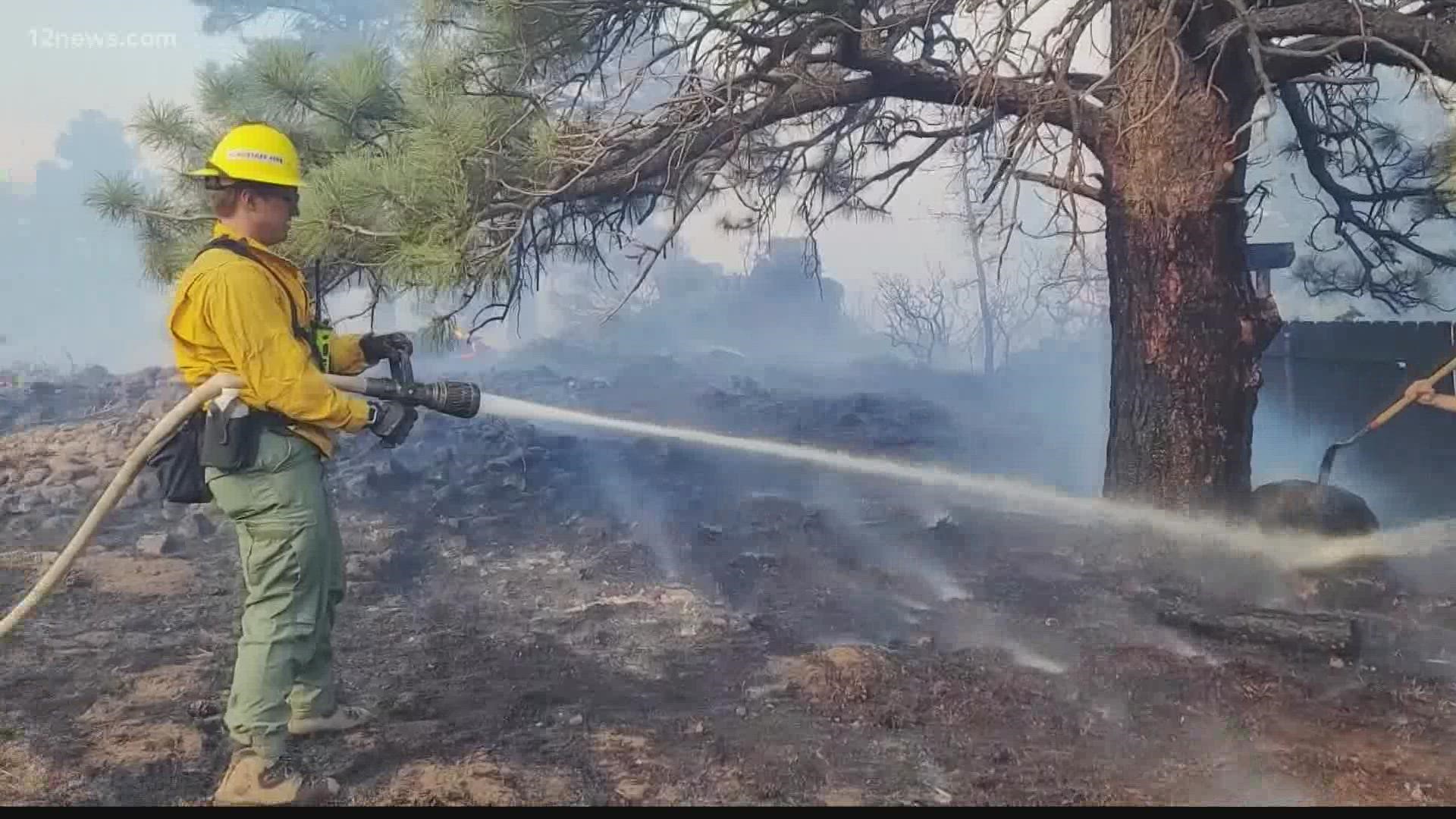PHOENIX — Climate change is affecting wildfires and experts say those effects are already being seen.
The Tunnel Fire northeast of Flagstaff exploded in size Tuesday, driven by a Red Flag day with extremely high winds.
Typically, fire officials say, those winds tend to die down overnight as temperatures drop and humidity levels increase. But Tuesday night, that didn't happen.
Fire officials said the winds kept up all night, similar to other fires in recent years.
"They were not getting any recovery at night," University of Arizona climatologist Mike Crimmins said. "So the fires were burning intensely through the dead of night."
A study published in February of this year showed temperatures are not decreasing as much as they normally do during fire season. Because of that, the intensity of the fire continues to build.
Other research shows fire becoming more common across the West in the last 40 years as climate change has taken hold.
"They're wind-driven fires, they're in a specific fuel type," Tiffany Davila with the Arizona Department of Forestry and Fire Management said.
And fire forecasters are having to deal with those changes in predicting fire behavior.
"They have this sense of what does this ecosystem observe normally," Crimmins said. "What's the normal fire regime for right now in a stable climate?"
VERSIÓN EN ESPAÑOL: Cómo el cambio climático está provocando los incendios forestales en Arizona
Up to Speed
Catch up on the latest news and stories on the 12 News YouTube channel. Subscribe today.

